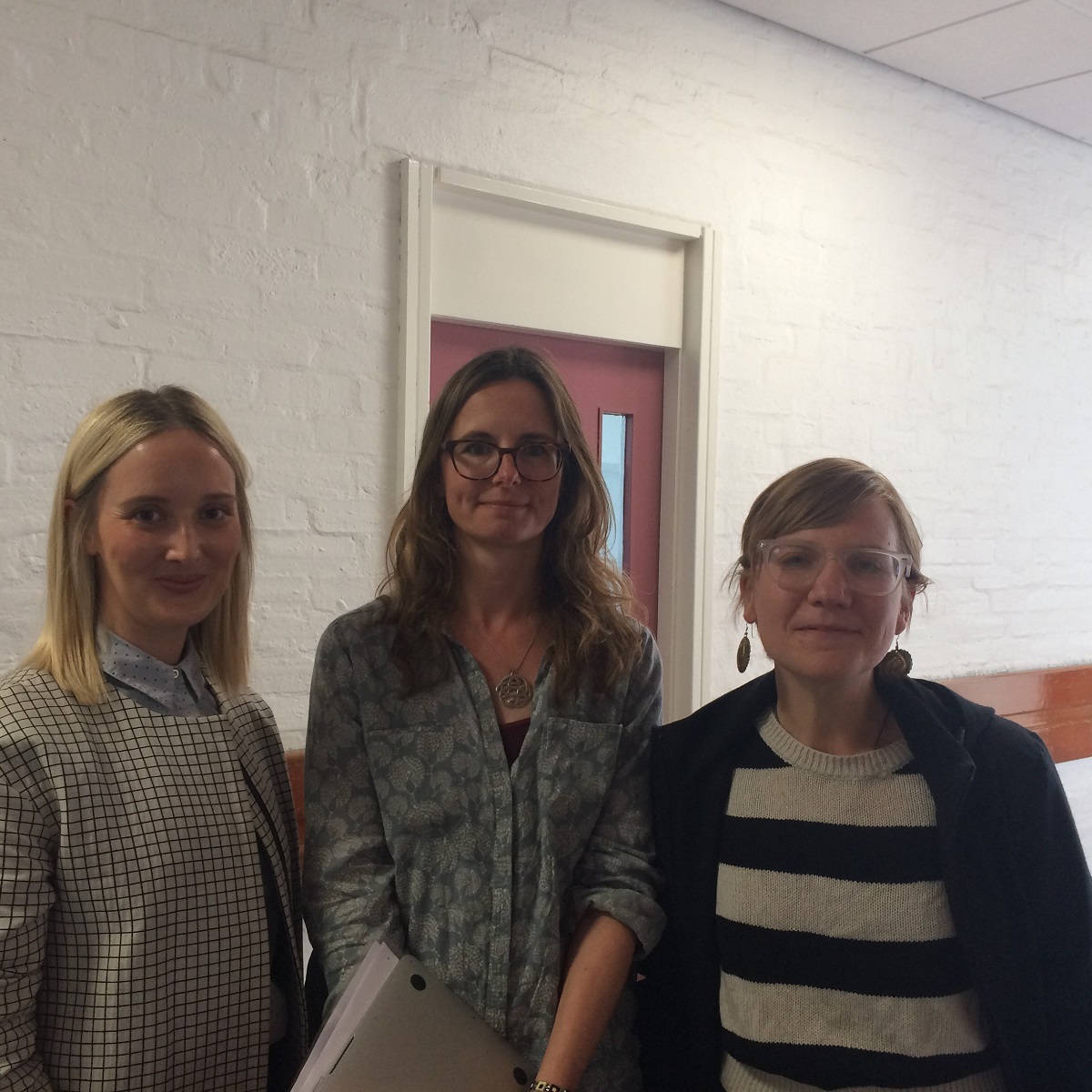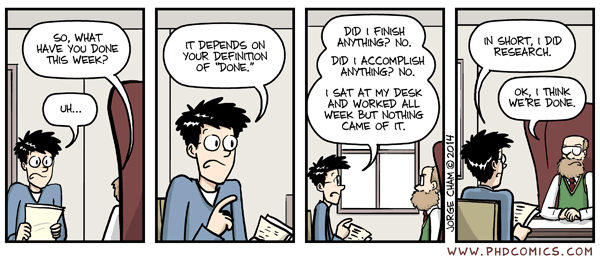‘Hustle’ Your Way to an Academic Career in Social Sciences
Hustling might not be a verb you would immediately associate with academic progression, but after an insightful event held by CoSS Employability: ‘Careers in Academia’, it’s taken on a whole new meaning (thanks Dr Yates)! Whether you're based in Social Sciences or a different College, the advice offered by Dr Donna Yates, Dr Claire Bynner and Dr Kat Duffy is universally applicable to anyone thinking about pursuing a career in academia. Listen up, and get ready to hustle…
The guest speakers were all recently-appointed lecturers, but their career trajectories looked very different, and each offered a unique and honest portrayal of what it takes to break into academia and forge a successful career. Though at times their honesty might have dissuaded the casual listener from following in their footsteps—this was no rose-tinted presentation of the ivory towers of learning—when they spoke, their undeniable passion for their subjects and the fulfilment of their research shone through. There was unanimous agreement that the opportunity to be paid to do the research they love is a real privilege and a USP (‘unique selling point’ – with thanks to our marketing guru, Dr Duffy) of a career in academia.
In outlining the great and the not so great aspects of an academic career, similar themes emerged from the three talks:
It’s not your typical 9-5 job
This might not be news to you (it might even suit you) but Dr Yates, Dr Duffy and Dr Bryner all agreed that adopting a structured approach to time management is essential to keep on top of your priorities. There may be times when a research grant, marking, and a conference paper all land on your desk at once. The job does not end at 5 PM, and often spills over into the weekend. What you do get, however, is flexibility and autonomy in how you approach your workload: that desk might not be in an office, but on a flight to a policy forum in South America, a library in London, or your own breakfast table.
There may be times when you lose focus on what you’re doing and why
As a sometimes solitary existence, it can be very easy to lose sight of your priorities and needs when you are overburdened or unsure where your career is going next in academia. A really practical solution is to make a plan (several actually):successful researchers need short, medium and long-term plans. As an early career researcher, it’s gonna take some hustle (thanks again Dr Yates): putting in long hours, finding your academic identity, working with others to get your name out there. But not all hustle is GOOD hustle. In creating a strategic plan to achieve your goals you can say no to the tasks that don’t fit into your critical path.
Your plan could follow this format:
Long term: Plan your transition from Postdoc. to Lectureship. What do I want to be remembered for? What is my brand and does my social media presence support this?
Medium term: Plan your transition from PhD to Postdoc. What are my next papers, where do I want to put in my next grant application, what conferences should I be attending, what jobs do I need to target and how should I go about this; how do these goals further my long-term plan?
Short term: What do I need to do this week to further my medium- and long-term plans, i.e. what papers or admin. do I need to finish, what teaching do I need to prepare, what meetings are in my diary? NO UNNECESSARY HUSTLE PERMITTED!
Dr Yates’ prezi has lots of useful information about organisation and how she utilised strategic planning to assess and re-assess her priorities and (re)gain focus. Bottom line: a strategic plan will help you align your career development with your research goals, and keep you focused on winning the real prize: a lectureship in your field at an institution you will be proud to work for.
You can be overwhelmed by administrational tasks
Maintaining a laser-like focus is not always quite so simple, though. Alongside research and teaching responsibilities come unavoidable administrative tasks: marking, teaching preparation, and attendance at various committees and boards. While these may not be everyone’s cup of tea, they do offer career development opportunities. Dr Kat Duffy noted that early in her career, volunteering to sit on various boards and committees allowed her to form essential networks with colleagues at various levels across the University. Dr Bryner recommended the book:‘Deep Work’ by Cal Newport - full of techniques that will allow you to foster a practice of distraction-free working, ultimately helping you soar above your admin. tasks!
Now for the good bits:
You do what you love!
Few other careers will offer you the chance to be paid to research and find solutions to issues you care so passionately about. In Dr Duffy’s words, “It’s a privilege to be paid to research.” There is huge variety in the job too: travelling opportunities, research projects, and collaborations. YOU have the autonomy and flexibility to shape your own career.
You’ll get those creative juices flowing
A career in academia allows you to be truly creative in how you approach your research. Dr Donna Yates emphasized the real opportunities that come with shaping your online presence and “claiming your expertise.” She firmly believes that her own online presence has been instrumental in helping her achieve her career highs (see her other prezzi on her social media journey).
Impact
Your research can have a direct and positive impact on how the world works: there are very few jobs where you can say that!
Inspiring future researchers
A real plus is the rewarding opportunity to develop and inspire future generations of students. Nurturing minds really does make up for all that admin.
Ready to give it a go? Here are some tips on what you should be doing now if you are thinking about making the move into an academic career:
Keep a Running CV: This is all about giving yourself a psychological boost: draft an academic CV and keep updating it each semester with your achievements. As the document gets longer, your confidence rises!
Find mentors: perhaps someone you work closely with in your department, even if they are only one or two years ahead of you in their career: their recent experience of making the transition from postgraduate researcher to a postdoctoral career in academia will help. Mentors may also include friends and family: gaining perspective is key. Check out Dr Kay Guccione’s fab guest post for more tips and tricks for working with mentors.
Construct a strategic plan: Where do you want to be in 10 years’ time? If you aren’t there by that time, what next? What are the opportunities that fit into your critical plan? If things don’t fit, say no!
Network (but remain authentic): Seek out your research and support networks and continue to make meaningful connections. A warning from the speakers: don’t always chase after the ‘research superstars’; their time is usually limited and a habit of cultivating only the famous won’t go unnoticed by your peers—don’t give the impression that you’re shallow or inauthentic.
Begin to claim your online presence: whether through a professional blog, your own website, or just enhancing your twitter profile, get your name associated with your research: this is how people find out about your expertise.Unsure where to start? Sacha recently posted the lowdown on how to begin boosting your online academic presence.
Tool Up: What knowledge, skills, and attributes do you need to succeed in your sector, and what might you need in 5 years’ time? Look at the planning and strategy documents put out by the research councils and your potential employers, and think about their vision and how you can slot yourself into it.
Above all, FAKE IT ’TILL YOU MAKE IT: if you want to become a high-flying academic, behave like one!
Useful links:
Getting the First Lecturing Job www.agcas.org.uk > Resources
www.Jobs.ac.uk > Careers Advice (including Ebooks)
www.Vitae.ac.uk > Pursuing an academic career







